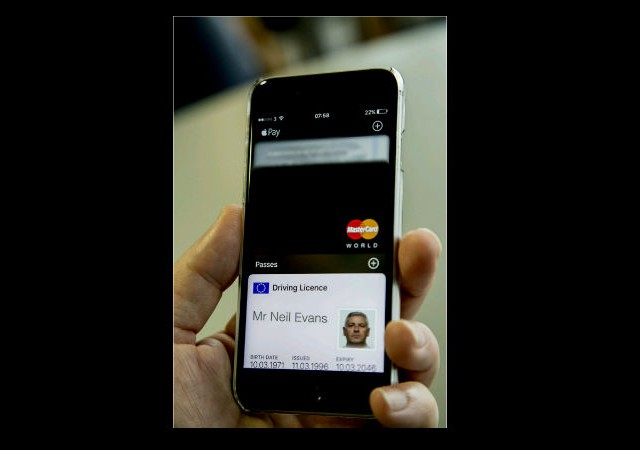
Big data management salaries see 8 percent rise in UK
If you were thinking about switching careers in order to start earning bigger money, you might want to consider a career in big data management. Reports started coming in that salaries for this position jumped eight percent this year, more than what the Bank of England forecast (three percent).
Professional IT resourcing firm Experis also says that 5,148 advertised jobs in Q1 were in the big data segment, with 87 percent being in London. Other tech cities are closing the gap though, with Manchester, Leeds and Birmingham being notable examples.

Most UK tech workers against Brexit
The tech industry is not really hyped about the UK’s potential abandoning of the European Union, according to new reports by market analysts.
Juniper Research just released a new report which says that almost two thirds (65 percent) of UK’s tech employees believe Brexit would not have a positive effect on the global tech industry.

Most UK workers don't want company-issued wearables
Despite the fact that three million Britons bought wearables during 2015, the majority of UK office workers are unwilling to wear them at work. After conducting a survey of 2,000 workers across the UK, PwC found that only 46 percent of respondents would accept a free wearable device from their company if their employer had access to the data it recorded.
In the past few years, wearables from companies like Fitbit and Jawbone have taken the consumer market by storm as a means of tracking one’s health and fitness. PwC’s survey found that two-thirds of those surveyed want their employer to take a more active role in their health and well being, and a company-issued wearable would be a good first step at doing just that.

UK government wants to fine companies for data breaches
Even though the TalkTalk hack happened last October, it’s still sending ripples through the cyber-security world. The Department for Culture, Media and Sport has given a number of recommendations, following the breach.
Among the recommendations is the idea of fining companies that fail on cyber-security, as well as the idea of linking the CEO’s pay to effective cyber-security.

UK businesses lose over £1 billion thanks to cybercrime
New figures released by Get Safe Online and Action Fraud, the UK’s national fraud and cyber crime reporting center, reveal the cybercrime cost for British businesses over in the last year.
In total, businesses reported £1,079,447,765 in loses as a result of cybercrime, which is a 22 percent increase from the previous year. Each police force in the UK recorded around £19.5 million in losses but this number may in fact be slightly higher as some businesses may not have reported or disclosed the full extent of the losses they incurred to the authorities.

Many UK workers don't know what ransomware is
It seems all that talk by security experts how employee education is the best way to protect a business from a cyber-attack has fallen on deaf ears.
A new study by ISACA, based on a poll of 2,000 UK consumers, says that more than half of those haven’t gotten any cyber-security awareness training, at all.

Amazon Fresh now delivers groceries in London
Amazon Fresh has arrived in the UK and starting this week the online retailer delivers groceries in London.
This is the first time that the service will be available outside of the US and initially it will offer over 130,000 grocery items to consumers living in north and east London. A host of new items including thousands of fresh produce, dairy and bakery items will be available through the online delivery service.

UK carrier Three will block ads for a day
In an attempt to improve the daily lives of its customers, Three is planning to block ads for all of the customers using its network in the UK.
The company will block all mobile ads for its users for one day next month. The trial will last for 24 hours but if it is received successfully by Three customers, the company has hinted that it would be willing to expand its experiment.

UK workers spend 2.5 business days away from the office
In today’s modern world working a traditional nine-to-five job is impractical and no longer necessary, according to a new report from TeamViewer.
The company commissioned the report titled "The End of Nine-to-Five", which found that 72 percent of UK office workers believe that traditional office life is no longer relevant with almost two thirds (62 percent) of those surveyed currently working remotely at least one day a week. Even more surprisingly, UK workers on average spend 2.5 days or half of their working week away from their offices.

Microsoft opposes Brexit
Here at BetaNews, we try to avoid political topics; unless it is somehow technology related, of course. Obviously, one reason for this is that politics is not the focus of our site. Another reason that I personally avoid it, is that the subject of politics is very polarizing and can potentially lead to non-productive name-calling in the comments.
With all of that said, Microsoft has pulled me into the "Brexit" discussion, otherwise known as the EU referendum. Don't know what that is? Well, in very basic terms, the UK has to make a decision on whether or not to leave the European Union. As an American, I will keep my opinion on the matter to myself. Michel Van der Bel, Microsoft UK CEO, however, has decided to share the company's Brexit stance -- opposition to leaving the EU -- in a letter aimed at its UK employees. You can read the full letter below.

UK will introduce digital driver's license in 2018
The days when you forget your driver’s license and ending up paying a fine for it might soon be a thing of the past, as there are people out there working on a paperless version of the license.
According to a BBC report this week, the UK’s Driver and Vehicle Licensing Agency is working on such a project, and there’s already a prototype in place. A photo of the prototype was tweeted recently by CEO Oliver Morley.

No UK tech unicorn is publicly in favor of a Brexit
This morning I wrote a report on how just a third of UK’s companies actually have a plan in place in case the country leaves the European Union, following the Brexit referendum in some six weeks’ time.
At the same time, Guardian reached out to UK’s unicorn companies -- those valued at more than a billion dollars -- about their opinion on the Brexit, and those that were willing to speak were firmly against the UK leaving the European Union.

98 percent of Brits are happy with their bank
Pretty much everyone in the UK is satisfied with their banks and the services those banks offer, Juniper Research confirmed this week.
According to the market analysts' research, 98 percent of those surveyed said they were either "happy", or "quite happy" with their service. Juniper failed to mention the size of the group it surveyed, though.

The UK's year in business continuity disasters
All businesses should worry about how they'll keep going in the event of a disaster. But those disasters aren't always internal, they can be due to outside forces and can be hard to predict.
As part of this week's Business Continuity Awareness Week 2016 organized by the Business Continuity Institute, managed services company IT Specialists (ITS) has produced a list of the top 10 UK business continuity disasters of the last year.

Barclays will introduce Android mobile payment service
UK bank Barclays has announced it will soon roll out its own contactless payment service for its Android-using customers in the country. All Barclays customers with an NFC-enabled Android smartphone will be able to pay for things the same way they pay with a contactless card.
For purchases of up to £30, all they need to do is tap their smartphone at the payment terminal, the same way they’d tap a contactless card. For purchases of up to £100, customers would need to tap in their PIN code.
